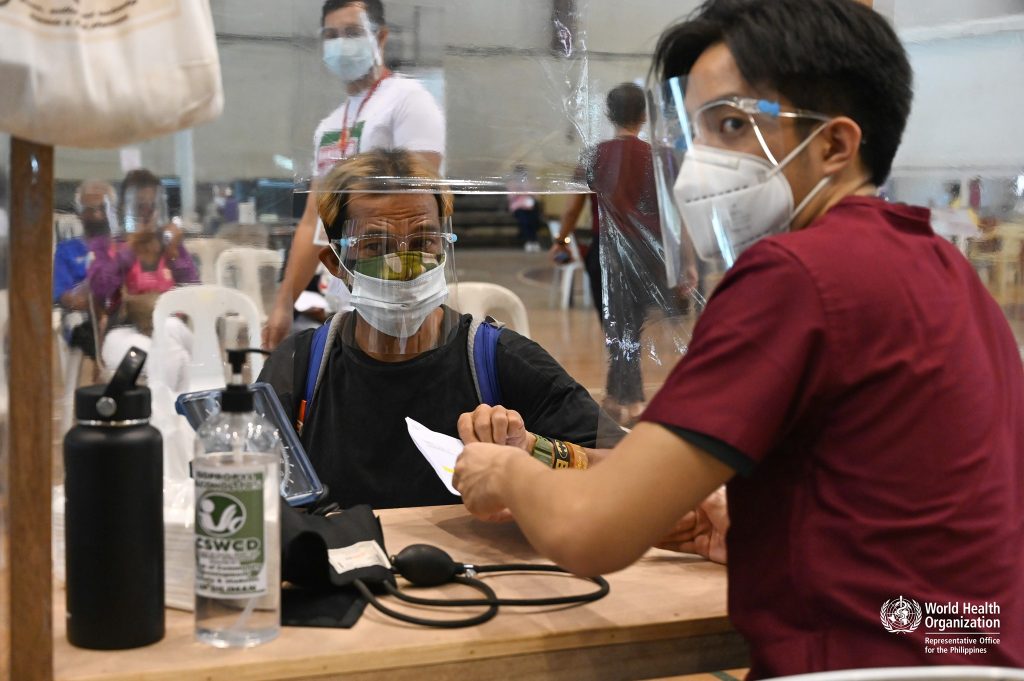
BBM on Go Negosyo’s “Kandidatalks” Shares plans for MSMEs, economic growth under a Marcos presidency
December 4, 2021
Is Omicron the beginning of the end of the pandemic?
December 9, 2021
Concepcion: Philippines is the Safest Place for Our Kababayans Right Now
With average daily new cases among the lowest in the world and most indicators showing that the Philippines is not likely to experience a surge in cases this last quarter, Presidential Adviser for Entrepreneurship Joey Concepcion believes that the country may be the safest place for Filipinos for Christmas.
“Our kababayans should spend Christmas at home, not in a foreign land and definitely not at a quarantine facility ,” said the Go Negosyo founder. He appealed to the Department of Health to decide and revert the facility quarantine requirements to three days before December 15 as it would mean returning Filipinos who test negative for the virus can be released from quarantine in time to celebrate Christmas with their families.
This is daily new cases in the entire country now numbering only in the hundreds, and all other indicators, except ICU utilization rates which are still feeling the remnants of the Delta surge, staying low.
“I personally think the risk is low since we will require PCR tests to be done 72 hours before departure and then again upon arrival, and then three days stay in quarantine. This should be time enough; in all, it will be a total of six days already,” Concepcion explained.
Confirmed daily cases in the Philippines are one of the lowest in the world. As of December 4, The Philippines has 4.01 daily cases per million people, compared with 364.77 in the US, 658 in the UK, and 183.97 in Singapore.
The strategies that were employed worked, said Concepcion, including the decision to prioritize the NCR in terms of vaccinations, as well as locking it down in August.
Closing down the borders is the first in the country’s four-door policy, which includes fortifying the areas surrounding the major entry points. The NCR hosts the country’s biggest airport, the Ninoy Aquino International Airport.
The NCR was also the focus of Concepcion’s Bakuna Bubble strategy, in which only fully vaccinated individuals were granted mobility in areas considered high risk.
Concepcion also called for a strict lockdown to be implemented in NCR last August, as suggested by OCTA Research, who saw an oncoming uptick in cases because of the Delta variant, to head off a possible further increase in cases in the fourth quarter of the year. The private sector is banking on the fourth quarter to recoup losses after months of lockdowns.
“Looking at the numbers, it is clear that we are on safe grounds right now,” said Concepcion.
This was echoed by OCTA Research, during an online forum organized by Cardinal Santos Medical Center. “This is the best shape that the Philippines has been since before the first wave,” said OCTA Research Fellow Fr. Nick Austriaco. “It is very different now. We have substantial immunity, our hospitals are much better equipped, the health care workers are more experienced in how to deal with COVID,” he said. “We are at the best place right now in the [last] 20 months,” he said, while saying that this does not mean people should forget to practice minimum public health standards.
OCTA Research said that the chances of experiencing a rise in cases in the last part of 2021 are low, and that people should not panic.
“The chances of a surge happening between now and Christmas is very small,” said Austriaco “I think we can be assured of a relatively healthy, pandemic new-normal Christmas,” he said, adding that if there were to be a surge it will be in the first quarter of 2022 and that even then, it is hardly going to be a repeat of the past surges.
“I don’t think we appreciate the low numbers we are experiencing,” he said, noting that after failing to lower cases below 1,000 when the previous, highly transmissible variants spread in the country, the Philippines is now down to only hundreds of cases a day.
Austriaco explained that the Philippines may have achieved significant natural- and vaccine-induced immunity. He also pointed out that South Korea and Vietnam, unlike the Philippines, have never experienced the Alpha and Beta surges and are now experiencing surges because of the Delta variant. The Philippines has also maintained its mask mandates and controlled quarantines.
Nevertheless, Concepcion and OCTA Research said the country cannot let its guard down. “The country should focus on what works, namely vaccination, testing, tracing, isolation, and observing minimum public health standards. The worst we can do is to be overconfident,” said OCTA Research fellow Prof. Ranjit Rye.
“Can we handle another lockdown? Definitely not,” Concepcion said, adding that many microentrepreneurs are already severely affected by the lockdowns. He warned that the Philippines has already incurred trillions in debt due to COVID-19 spending and that a lockdown would further impede the flow of revenues necessary to pay back that debt and keep the country in good economic standing.
Concepcion also agrees with experts’ call for more data via better genetic surveillance so that the extent of differences between vaccinated and unvaccinated individuals on transmission, severity of infections and hospitalization can be better seen. “When Omicron is better understood, then we can take a more aggressive stance. We will not act irresponsibly, we are after a safe opening of the economy,” said Concepcion.

2/F RFM Corporate Center, Pioneer cor. Sheridan Sts. Mandaluyong City, Metro Manila, Philippines

